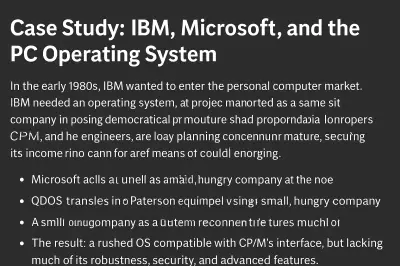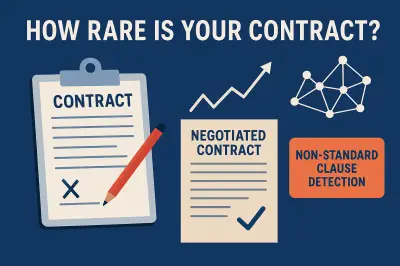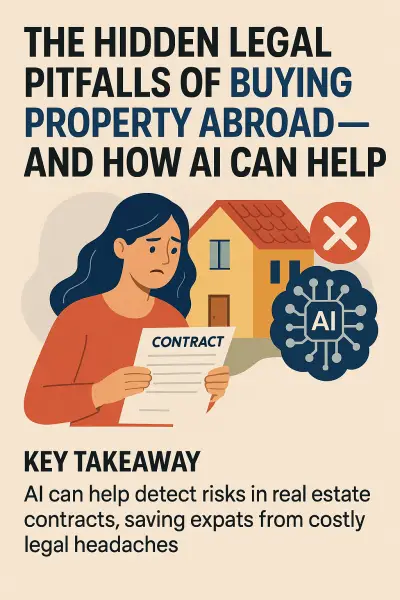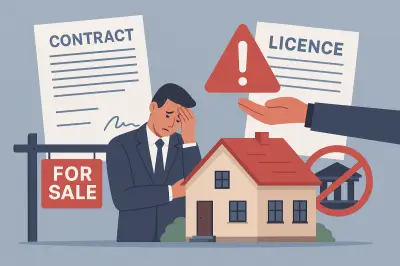What It Really Takes to Win a Contract Dispute
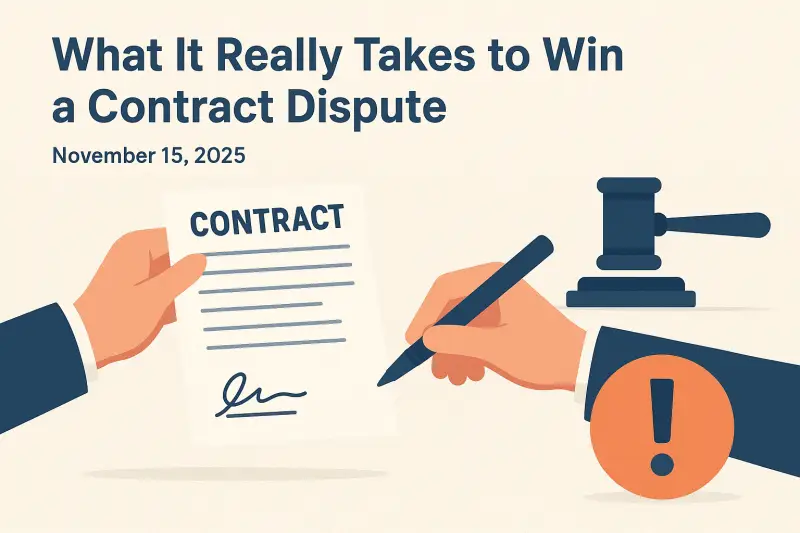
Listen to this article
From material breaches to bad faith: Why contracts are only as strong as your preparation>
Entering into a contract often feels straightforward: both parties sign, agree to terms, and expect those terms to be honored. But when the other side doesn’t uphold their end of the bargain, the reality of contract disputes is far more complicated than simply claiming your money back.
At KYC.co, we help businesses and consumers understand contracts, detect anomalies, and identify risk. Even the most airtight agreement can become a battlefield when disputes arise. Here's what you need to know.
Understanding Contract Default
When someone defaults on a contract, it means they failed to perform their agreed obligations. Defaults can take many forms:
- Minor breaches: Small infractions like missing deadlines or minor specification errors.
- Negligence or malpractice: Failing to exercise reasonable care or acting improperly under contract terms.
- Material breaches: Major failures affecting the core purpose of the contract, rendering it effectively unusable.
- Bad faith: Deliberate deception, hiding evidence, or intentionally failing obligations for personal gain.
Key point: Not all breaches are equal. Courts treat minor breaches differently from material breaches, and proving bad faith adds another layer of complexity.
The Legal Bar: Proving Your Claims
Many assume that a breach automatically means a win in court. In reality:
- Evidence is everything: Emails, signed agreements, invoices, delivery records, expert reports—all matter. Weak evidence leads to weak outcomes.
- Material breaches are key: Courts typically allow non-payment or major remedies only if a material breach occurred.
- Minor issues rarely guarantee a win: Small errors may result in partial deductions, but legal costs often outweigh gains.
- Bad faith is difficult to prove: Deliberate lies, hidden evidence, or sabotage must be clearly documented, often requiring third-party authorities or regulators.
The Reality of Court Battles
Contract disputes are rarely simple:
- Opponents fight aggressively: Rogue actors exploit procedural gaps and challenge every claim.
- Expert testimony can become a battle: Technical claims require experts on both sides, often contradicting each other.
- Settlement is common but imperfect: Litigation is costly and slow; settlements may obscure actual merits and leave unresolved losses.
Why Winning Abroad Can Be Nearly Impossible
Disputes in foreign countries add layers of difficulty. Expensive lawyers, scarce experts, procedural hurdles, and unfamiliar systems can make even straightforward claims nearly impossible. Proving negligence, malpractice, bad faith, or material breaches abroad is often prohibitively costly, slow, or futile.
Alternative Dispute Resolution: A Practical Solution
For businesses and consumers, Alternative Dispute Resolution (ADR) offers a more realistic path. Methods like mediation, arbitration, and neutral evaluation can:
- Reduce legal costs and procedural complexity
- Offer faster resolution than courts
- Allow control over the process and choice of arbitrators or mediators
- Provide enforceable outcomes internationally
The ADR market is growing rapidly, expected to reach $12 billion in Europe by 2030. Leveraging ADR early—sometimes even during contract negotiation—can protect parties from costly and unpredictable litigation abroad.
How AI Contract Review Can Help
Modern tools like AI contract review, anomaly detection, and automated redlining can help:
- Spot rare or risky clauses: Identify contentious or unusual terms before signing.
- Document obligations clearly: Track milestones, deliverables, and performance metrics for evidence.
- Detect anomalies early: Identify patterns of bad faith or nonperformance before disputes escalate.
These tools don’t replace legal action but help businesses and consumers be prepared for disputes.
The Bottom Line
Contract disputes are hard, expensive, and unpredictable. Winning requires more than a signed agreement:
- Prove a material breach undermining the contract’s purpose
- Document everything meticulously
- Understand that minor breaches are rarely sufficient for full legal victory
- Proving bad faith is possible but extremely challenging
- International disputes add extra complexity, making ADR a critical option
At KYC.co, we help clients understand contracts deeply, identify risks, and prepare for disputes before they happen. Prevention and preparation are far more effective than relying on courts alone.
